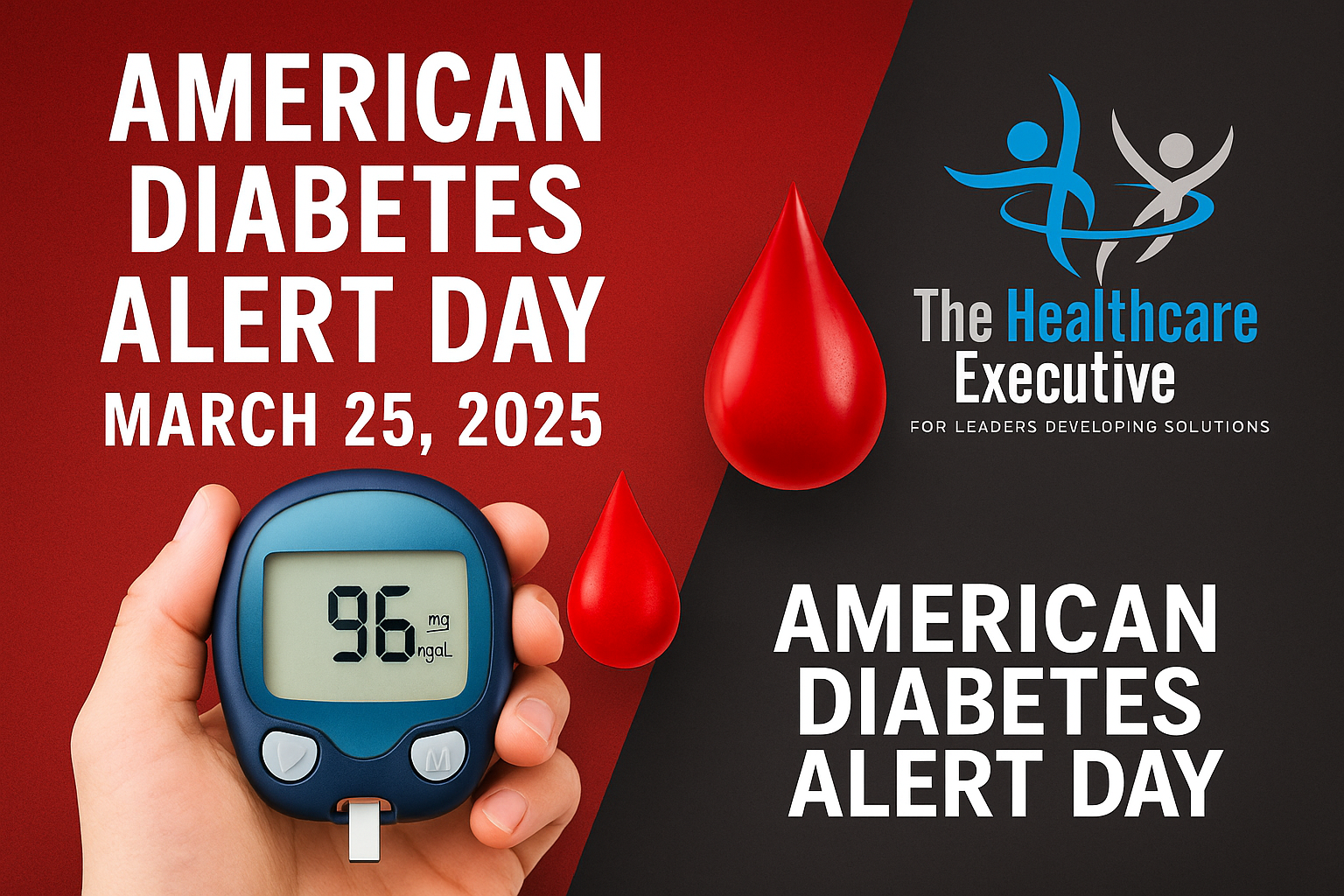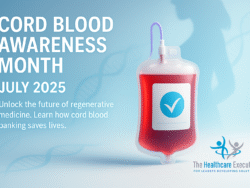American Diabetes Alert Day: Executive Imperatives for Population Health

- Posted by Greg Wahlstrom, MBA, HCM
- Posted in Health Observance Calendar
Leadership Strategies for Risk Detection, Prevention, and Community Trust
Published: March 26, 2025
American Diabetes Alert Day on March 26, 2025, marks a critical moment for healthcare executives to drive measurable impact in population health strategy. With over 38 million Americans diagnosed with diabetes and an estimated 96 million living with prediabetes, the time for passive observation has long passed. Leaders must deploy enterprise-level prevention frameworks that go beyond traditional clinical interventions. At Houston Methodist, data-driven outreach has been embedded into community partnerships to improve early identification and risk mitigation. Executives overseeing strategic planning should view this observance not as a campaign, but as a call to align organizational priorities with scalable preventive care. Diabetes touches nearly every dimension of health—from cardiovascular outcomes to labor productivity—making it a strategic imperative for systems seeking long-term sustainability.
Hospital executives must assess whether their organizations are leveraging screening tools effectively, particularly for underserved populations. CMS has introduced reimbursement incentives for diabetes screening under chronic care management codes, yet system uptake remains fragmented. At Montefiore Health System in New York, integrated EHR prompts during annual wellness visits have increased diabetes screening rates by 27% among Medicare beneficiaries. These actionable changes in clinical workflows are executive decisions—not clinical happenstance. Executives must set performance expectations that tie diabetes identification efforts to care navigation, behavioral health integration, and community resource linkage. American Diabetes Alert Day offers the moment to institutionalize these improvements across system operations and ensure equity remains embedded in access metrics.
Operational leadership must also consider how diabetes prevention programs intersect with social determinants of health (SDOH). At Allina Health, hospital-sponsored mobile wellness clinics bring HbA1c testing directly to food-insecure neighborhoods. These interventions extend beyond public relations—they represent governance commitments to shifting health outcomes. In 2025, strategic investment in community-based screening will be scrutinized not only by accreditation agencies, but by commercial payers and public health watchdogs. Health system boards must direct resources toward upstream strategies like nutrition access, culturally aligned education campaigns, and longitudinal tracking. American Diabetes Alert Day serves as a checkpoint for assessing whether prevention has been operationalized as a systemwide value—not just a clinical department project.
Communications and reputational strategy are central to any observance. Campaigns around diabetes risk must speak to the realities of community distrust, misinformation, and stigma. The American Diabetes Association (ADA) has provided extensive materials for use on Diabetes Alert Day, including culturally responsive social media assets and risk tests in multiple languages. Healthcare executives should coordinate messaging that aligns with DEI goals and reflects the lived experience of their service areas. A campaign that lacks cultural fluency can undermine credibility, while inclusive, community-informed messaging strengthens system reputation and long-term trust. Executives in marketing and public affairs must work in sync with population health leadership to ensure outreach efforts translate into measurable action.
Lastly, innovation officers and finance leaders must align diabetes interventions with strategic growth models. Population health analytics, value-based reimbursement models, and predictive risk scoring are no longer experimental—they are foundational to future-facing hospital systems. Organizations like Cleveland Clinic and Atrium Health have demonstrated how AI-enhanced registries can stratify diabetes risk and proactively guide care. But innovation without governance leads to fragmentation. Hospital CEOs must ensure these tools are governed ethically and deployed with operational consistency. American Diabetes Alert Day is not merely symbolic—it’s a strategic signal. The health system that treats it as an accountability milestone will be better positioned to lead the next decade of chronic care transformation.
Discover More
For additional leadership strategies on chronic care, prevention, and health equity, explore our executive blog on strategic healthcare workforce solutions.



